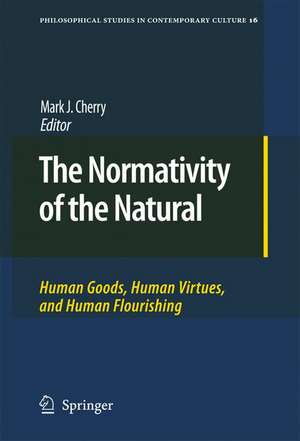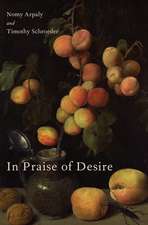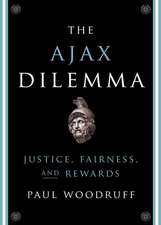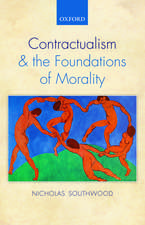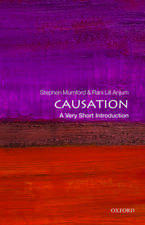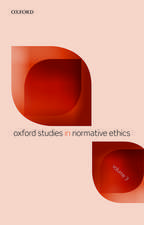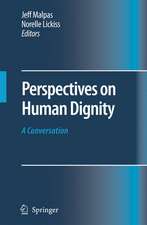The Normativity of the Natural: Human Goods, Human Virtues, and Human Flourishing: Philosophical Studies in Contemporary Culture, cartea 16
Editat de Mark J. Cherryen Limba Engleză Hardback – 8 iun 2009
The natural law addresses permissible moral choice through objective understandings of human nature and human goods. Persons are obligated to act in ways that are compatible with creating and integrating the basic human goods into their lives and the lives of others. Such goods provide the basis for practical reasoning about virtuous choices and immediate reasons for action. The goal is the making of rational choices in the pursuit of a virtuous, flourishing, human life. Natural law theorists have argued extensively against human cloning, abortion, and same-gender marriage.
Yet, whose assumptions regarding human nature should guide our understanding of the basic goods that mark the full flourishing human life? Moreover, why should nature, even human nature, be thought of as a moral boundary beyond which one must not trespass? Persons may wish actively to direct human evolution, utilizing the tools of both imagination and biotechnology. Perhaps nature is simply a challenge to be addressed, overcome, and set aside.
This volume is a critical exploration of natural law theory.
| Toate formatele și edițiile | Preț | Express |
|---|---|---|
| Paperback (1) | 637.59 lei 6-8 săpt. | |
| SPRINGER NETHERLANDS – 28 oct 2010 | 637.59 lei 6-8 săpt. | |
| Hardback (1) | 643.84 lei 6-8 săpt. | |
| SPRINGER NETHERLANDS – 8 iun 2009 | 643.84 lei 6-8 săpt. |
Din seria Philosophical Studies in Contemporary Culture
- 15%
 Preț: 641.38 lei
Preț: 641.38 lei -
 Preț: 390.08 lei
Preț: 390.08 lei -
 Preț: 383.93 lei
Preț: 383.93 lei - 15%
 Preț: 643.34 lei
Preț: 643.34 lei - 18%
 Preț: 950.96 lei
Preț: 950.96 lei - 15%
 Preț: 640.55 lei
Preț: 640.55 lei - 15%
 Preț: 640.55 lei
Preț: 640.55 lei - 15%
 Preț: 634.18 lei
Preț: 634.18 lei - 15%
 Preț: 645.60 lei
Preț: 645.60 lei - 20%
 Preț: 558.87 lei
Preț: 558.87 lei - 15%
 Preț: 641.03 lei
Preț: 641.03 lei - 15%
 Preț: 647.08 lei
Preț: 647.08 lei -
 Preț: 387.96 lei
Preț: 387.96 lei - 20%
 Preț: 570.72 lei
Preț: 570.72 lei - 15%
 Preț: 589.97 lei
Preț: 589.97 lei -
 Preț: 387.96 lei
Preț: 387.96 lei - 18%
 Preț: 777.50 lei
Preț: 777.50 lei - 15%
 Preț: 703.06 lei
Preț: 703.06 lei - 15%
 Preț: 643.48 lei
Preț: 643.48 lei - 18%
 Preț: 1237.14 lei
Preț: 1237.14 lei - 18%
 Preț: 953.82 lei
Preț: 953.82 lei - 18%
 Preț: 1114.83 lei
Preț: 1114.83 lei - 15%
 Preț: 635.47 lei
Preț: 635.47 lei - 15%
 Preț: 635.65 lei
Preț: 635.65 lei - 15%
 Preț: 642.68 lei
Preț: 642.68 lei
Preț: 643.84 lei
Preț vechi: 757.46 lei
-15% Nou
Puncte Express: 966
Preț estimativ în valută:
123.20€ • 128.95$ • 102.54£
123.20€ • 128.95$ • 102.54£
Carte tipărită la comandă
Livrare economică 31 martie-14 aprilie
Preluare comenzi: 021 569.72.76
Specificații
ISBN-13: 9789048123001
ISBN-10: 9048123003
Pagini: 240
Ilustrații: X, 230 p.
Dimensiuni: 155 x 235 x 23 mm
Greutate: 0.51 kg
Ediția:2009
Editura: SPRINGER NETHERLANDS
Colecția Springer
Seria Philosophical Studies in Contemporary Culture
Locul publicării:Dordrecht, Netherlands
ISBN-10: 9048123003
Pagini: 240
Ilustrații: X, 230 p.
Dimensiuni: 155 x 235 x 23 mm
Greutate: 0.51 kg
Ediția:2009
Editura: SPRINGER NETHERLANDS
Colecția Springer
Seria Philosophical Studies in Contemporary Culture
Locul publicării:Dordrecht, Netherlands
Public țintă
ResearchCuprins
The Normativity of the Natural: Can Philosophers Pull Morality Out of the Magic Hat of Human Nature?.- The Normativity of the Natural: Can Philosophers Pull Morality Out of the Magic Hat of Human Nature?.- Thomistic Foundations: Natural Law Theory, Synderesis and Practical Reason.- Human Nature and Its Limits.- Synderesis, Law, and Virtue.- Human Nature and Moral Goodness.- Natural Law for Teaching Ethics: An Essential Tool and Not a Seamless Web.- Human Goods and Human Flourishing: Revitalizing a Fallen Moral Culture.- Quid Ipse Sis Nosse Desisti.- Preparation for the Cure.- Diagnosing Cultural Progress and Decline.- The Malleability of Human Nature.- Reflections on Secular Foundationalism and Our Human Future.- Nature as Second Nature: Plasticity and Habit.- The Posthumanist Challenge to a Partly Naturalized Virtue Ethics.- The Challenge of Deriving an Ought from an Is.- Can Moral Norms Be Derived from Nature? The Incompatibility of Natural Scientific Investigation and Moral Norm Generation.- Moral Acquaintances and Natural Facts in the Darwinian Age.
Caracteristici
The Normativity of the Natural critically assesses natural law theory. It explores questions such as: Is there a universal human nature? Whose, or which, assumptions regarding human nature should guide our understanding of the basic goods that mark a flourishing human life? Why should nature, even human nature, be thought of as a moral boundary beyond which one must not trespass? What is the character of an adequate epistemology for coming to appreciate the deep nature of reality and what are its normative implications?
